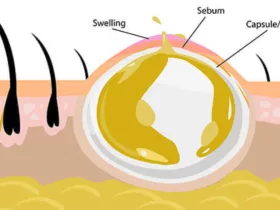COVID-19 vaccines protect us from severe symptoms. However, the downside is that we can still get the virus. Even if you are fully vaccinated, you can still suffer from the virus.
Experts discovered 21 symptoms that could still affect the people having both jabs. The most common symptoms are the nagging cough or change of smell and taste. However, despite vaccinations, you should be aware of these 21 possible symptoms.
So far, 48 million UK citizens have been vaccinated with the first dose of the COVID-19 vaccine. According to a report from The Mirror, almost 76 per cent of adults are fully vaccinated. More than 40 million UK citizens have both jabs.
You can find all COVID-19 symptoms on the ZOE Covid 19 Symptom Study app. The latest report shows 21 symptoms that could affect fully vaccinated as well as double-jabbed people. Both the signs and symptoms have been highlighted by the public. This helps the experts track all the signs and symptoms that comes with the virus.
Fully vaccinated Brits no longer have to isolate if they come in contact with an infected person. However, the rest of the rules still applies even to them, such as getting tested. Nevertheless, the advice to highlight all the symptoms in the app is a good one. It makes sense to help scientists understand the virus better.
21 COVID-19 signs and symptoms
Some of the new signs and symptoms are chest pains, muscle pains, unusual tiredness, changes in mouth or tongue and more. Here is the full list of the 21 possible symptoms:
- High temperature
- Chills or shivers
- Persistent cough
- Loss or change of smell
- Loss or change of taste
- Headache
- Unusual tiredness
- Sore throat
- Sudden confusion
- Skin rash
- Changes in mouth or tongue
- Red and sore fingers or toes
- Shortness of breath
- Chest pains
- Muscle pains
- Hoarse voice
- Diarrhoea
- Skipped meals
- Abdominal pains
- Runny nose
- Sneezing


























Leave a Reply